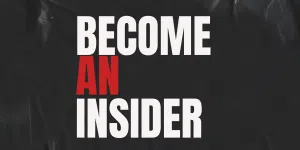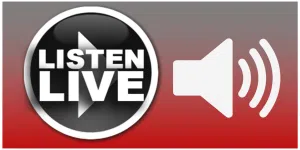It was 43 years ago Saturday (December 3rd, 1979) that 11 fans died in a stampede while entering the Who‘s concert at Cincinnati's Riverfront Coliseum. The tragedy — which all but eradicated festival concert seating for nearly two decades — happened when thousands of fans who were lined up outside the venue to make a mad dash for the stage upon the arena opening, rushed through only a few doors opened by the venue, flooding the lobby area, leaving nearly a dozen fans dead in their wake.
The fans killed in the stampede were Teva Ladd (27), Walter Adams, Jr. (22), James Warmoth (21), Phillip Snyder (20), David Heck (19), Stephan Preston (19), Peter Bowes (18), Connie Burns (18), Bryan Wagner (17), Karen Morrison (15), and Jacqueline Eckerle (15). A further 23 concert-goers were injured while attempting to enter the arena.
In the immediate aftermath of the tragedy, without yet knowing all the facts, a still-in-shock Pete Townshend spoke to Cincinnati's WEBN and was quick to lay blame on the band itself: “We know it was our fault and it's our responsibility. And I'm not going to get into any deep conversations with any police chiefs, fire marshals, federal people, or whatever. I mean. . . or even any mums and dads. Y'know, I'm a father. I've got two young kids.”
A bereaved Daltrey also spoke to the local station: “There's no words to say what I feel. I'm a parent, as well. I've got a boy of 15 and two little girls. And I can say. . . I'm just sorry for what's happened, y'know?” `
The victims’ families and the survivors sued the Who, the concert promoter Electric Factory Concerts, and the city of Cincinnati. The suit was settled in 1983 with the families each receiving $150,000 and the 23 survivors splitting $750,000 — roughly $32,000 each.
Pete Townshend revealed how the Who and its entourage dealt with the news of the Cincinnati tragedy following their show at Riverfront Coliseum: “That incident alone, was just appalling to me, absolutely appalling — I can't tell you. But what actually happened was I dealt with it, and the pain that it cause me, I think we all did, Bill Curbishley, me — our manager — y'know, a couple of the guys involved in the promotion of the concert, y'know, certainly all of us in the band and the women that were traveling with us at the time, whoever it was, y'know, by sitting there and getting drunk! There seemed to be nothing else that we could do, y'know, otherwise none of us were ever going to sleep. Y'know, we didn't know if we were responsible or not. We had no way or knowing what our role in it was.”
The Who's then-drummer Kenney Jones recalls that although a heart-wrenching situation for the Who, the Cincinnati tragedy, truly had nothing to do with the band: “We were in the clear. And we had all the families who had lost their kids write to us all — collectively and individually — saying, 'Look, please don't feel guilty in any way, please don't blame yourselves.' And it was, literally, the promoter's fault as I remember. Y'know, this bus arrived late, apparently, and then heard we had already started and they didn't wanna miss it, so they rushed for this one door — that was the only door open — and straight down a flight of steps. One fell over, the other one fell on top of that one, and that's what happened.”
Radio executive Andy Denemark remembered how rock radio handled the Cincinnati tragedy, which turned out to be a dry run of sorts for the following year’s coverage of John Lennon‘s murder: “That was a big story for us. Y’know, when you work in the news business, a big negative story is when you shine. Good news isn’t a thing that a network waves its flag about. So, for a rock radio network trying to establish itself as a credible news source, the Who’s stampede at the concert in Cincinnati was a big story for us. And the way we would talk to affiliates to try and get them on board, y’know, we would say: 'What did you do that day? Did you have a news source?' Now, the networks did carry the Who story, because it was a big story — people were killed.”
In 2015, a tribute to the victims was finally unveiled at Riverfront Coliseum — now renamed U.S. Bank Arena — and housed on the plaza level between the arena and the Great American Ball Park.
In the summer of 2018, Roger Daltrey visited Finneytown High School to pay tribute to the students of the school that were killed at Riverfront Coliseum: “I don't know whether any of you understand, but the policemen and fire (units) wanted to get the crowd out. They wanted to us not to play. And it was our manager, who said, 'If you do that, there will be a problem.' He really has never been thanked for what he did that night, 'cause he had huge rounds with him, which would've made their rescue job so much harder.”
In 2019, in commemoration of the 40th anniversary of the tragedy, Roger Daltrey, Pete Townshend, and longtime Who manager Bill Curbishley teamed up with Cincinnati's local ABC-TV affiliate WCPO for the local news documentary, The Who: The Night That Changed Rock, with an expanded documentary hitting all streaming services.
In the doc, all three talk candidly about that fateful night, with Townshend revealing, “Y'know, I'm still traumatized by it. It's a weird thing to have in your autobiography that, y'know, 11 kids died at one of your concerts. It's a strange, disturbing, heavy load to carry.”
Daltrey said: “That dreadful night of the third of December became one of the worst dreams I've had in my life.”
Manager Bill Curbishley, who made the decision to not tell the band about the pre-show stampede for fear of fans already in the arena rioting, admitted, “Despite everything, I still feel inadequate. I don't know about the guys, but for me, I left a little bit of my soul in Cincinnati.”
According to WCPO.com the special spotlighted how, “The band members and Finneytown, Ohio residents also reveal a special relationship between the Who and the Cincinnati high school where three of the victims were students. The documentary shares how that relationship has turned a horrible night into something positive, celebrating the futures of some current Finneytown High School students who will major in the arts or music in college, while remembering the students whose futures were cut short on December 3rd, 1979.”
Pete Townshend spoke frankly about the Cincinnati tragedy in his recent two-hour Audible Original mini-biography, titled Somebody Saved Me. He felt the Who should've put their tour on hold and stayed in the city out of respect for the dead: “What we have to remember is that at Cincinnati, nobody died inside the venue — they died trying to get in during a soundcheck. Y'know, this was not our fault but we were made to feel like it was. And it was just devastating. The very next day, we had a gig in Buffalo and we got on the plane and we went to Buffalo. And, when we get to Buffalo, Roger runs out onto the stage and he says, 'Let's do a great rock n' roll gig for the kids that died at Cincinnati!' And I just remember thinking, 'I know what you mean, Rog, and I know where your heart is — but this is just a crock of beep. Y'know, we should be in Cincinnati.'”
FAST FORWARD
This past May 15th, the Who returned to Cincinnati for the first time since the band's December 3rd, 1979 concert tragedy. Pete Townshend, Roger Daltrey and the band performed at the cities' TQL Stadium. During the concert's penultimate number, a video montage featuring photos of the 11 victims played under “Love Reign O'er Me.”
The Who chose local band Safe Passage to serve as their openers last night. Both drummer Mike Smikin and frontman Walt Medlock were in the crowd during the 1979 Riverfront Coliseum melee and attended nearby Finneytown High School, where three of the 11 victims had attended.
Ahead of the concert, Pete Townshend and Roger Daltrey tweeted a message to fans, which read: “May we ask you to pause for a moment today and give some thought for the following young people who lost their lives in Cincinnati on December 3, 1979.”
All proceeds from the Cincinnati show went to The P.E.M. Memorial Scholarship Fund For Finneytown High School Seniors. The fund is named in honor of three Finneytown students who died at the concert — Steve Preston who had graduated in June 1979 along with Jackie Eckerle and Karen Morrison — who both would've graduated in 1982.






